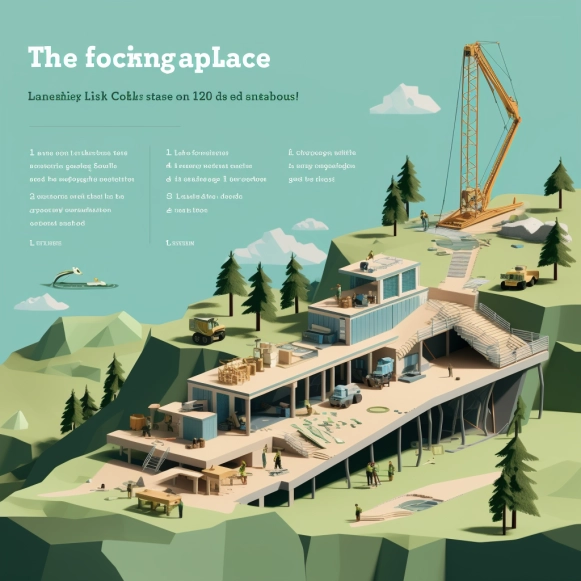One Click LCA makes construction more sustainable. It just raised $43.8 million with this 15-slide pitch deck.

- One Click LCA, which reduces emissions in the construction industry, recently received $43.8 million in funding.
- The company has been bootstrapped for the past 22 years, with funds coming from its first external round.
- The 15-slide pitch deck used to raise the round is available below.
After being bootstrapped for the previous 22 years, One Click LCA, a Finnish software company that aims to make construction more sustainable, has raised 40 million euros ($43 million) in its first external funding round.
The Helsinki-based firm, which began as a consultancy in 2001 before transitioning to software in 2010, has developed an automated life cycle assessment platform for construction stakeholders such as manufacturers and infrastructure developers. They can use One Click LCA to help them measure, report, and reduce emissions associated with their products and projects.
In addition to its own platform, the company integrates with a variety of other tools to incorporate emissions data into the initial design of building, infrastructure, and renovation projects as they progress. It takes emissions data into account in all decisions, makes recommendations to reduce environmental impact and improve circularity, and allows users to model changes.
The building and construction sector is not on track to meet its net zero by 2050 goals, according to the UN’s 2022 Global Status Report for Buildings and Construction. Buildings will account for approximately 37% of global CO2 emissions in 2021, according to the report. One Click LCA estimates this figure to be 57% based on an analysis of existing data and its own calculations. The production of building materials such as steel, cement, and glass contributes to many of these emissions.
“Life cycle assessment is actually the only tool that you can use to assess complex projects, complex assets, and complex supply chains,” says Panu Pasanen, founder and CEO of One Click LCA.
“It gives you a true north because it’s science-based and activity-based.”
This is due to the fact that it takes into account the entire life of a project, including material manufacturing and circularity, rather than each supplier reporting only what they are directly responsible for. “You cannot just greenwash things, which is possible with other accounting approaches,” Pasanen continued.
Pasanen believes One Click LCA can assist developers in saving money. “The only time where you can decarbonize at zero cost is the design or target setting phase,” he went on to explain. Cutting a few centimeters off floor slabs, for example, would result in significant environmental and cost savings across a high-rise building. “That’s not possible after you’ve commissioned the design,” Pasanen continued. Indeed, it is the retroactive changes that are costly, he added.
The company has a worldwide presence. Its database, which includes both general and manufacturer-specific data at the product level, considers 70 standards and certifications, including the United States’ Leadership in Energy and Environmental Design (LEED) standard and the United Kingdom’s Building Research Establishment Assessment Method (BREEAM). It accounts for the fact that emissions calculations and building regulations differ around the world using localized data.
Data from the platform can also be used to generate and publish Environmental Product Declarations, which highlight the environmental impact of a product.
PSG Equity, a growth equity fund, and InfraVia Capital Partners, a private equity firm, provided the cash injection, the company’s first round of external funding.
Pasanen believes that the right time to raise funds is now because sustainability has gained mainstream appeal in recent years. Pasanen went on to say that the company has already built its tools and expanded globally, but that it can now “put the pedal to the floor” and aggressively expand. He wants to reach a million users.
The additional funds will be used to develop more enterprise products, expand market penetration, and increase R&D. Furthermore, the company intends to implement biodiversity measurements in 2024 and investigate AI integrations.





